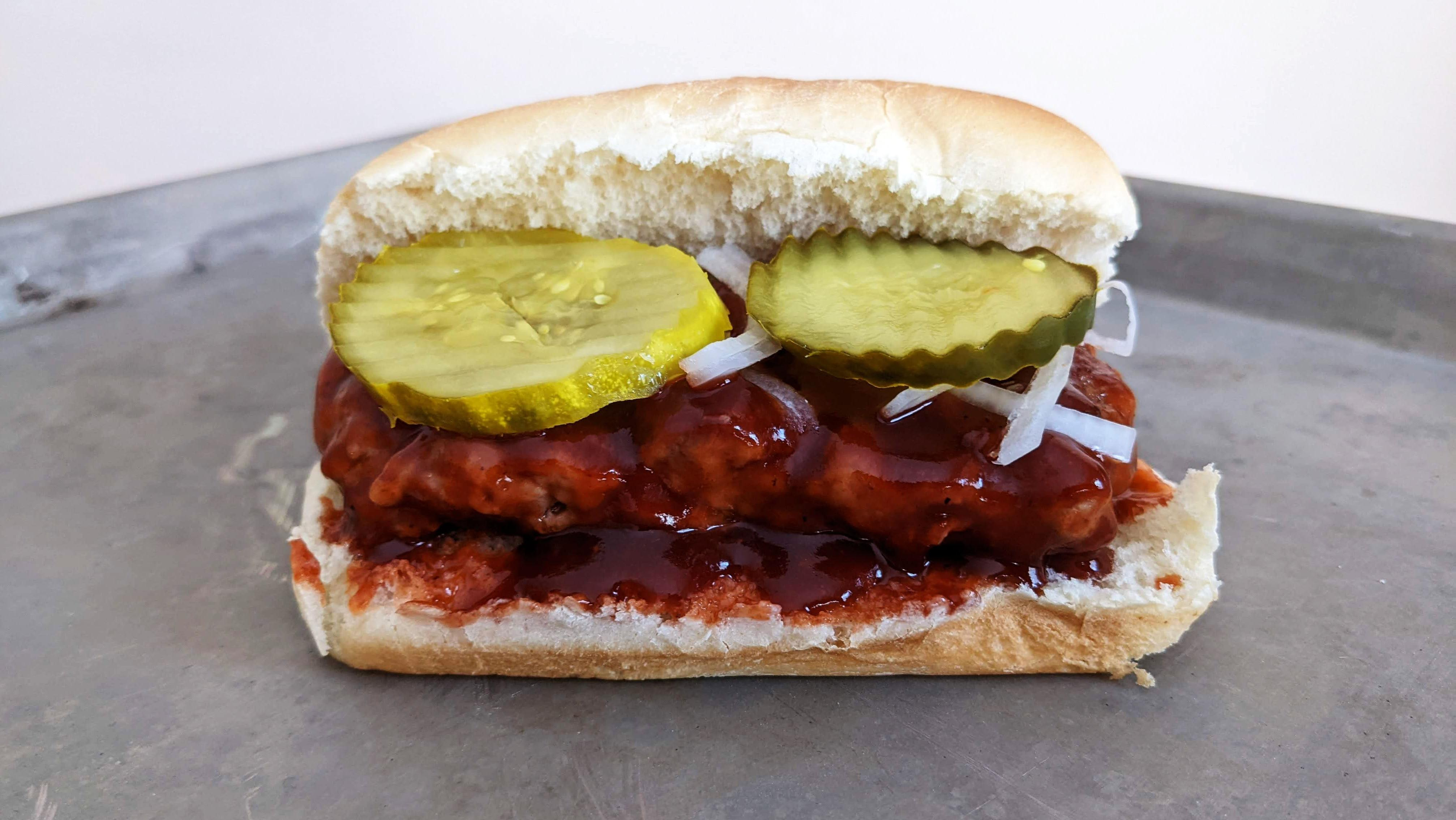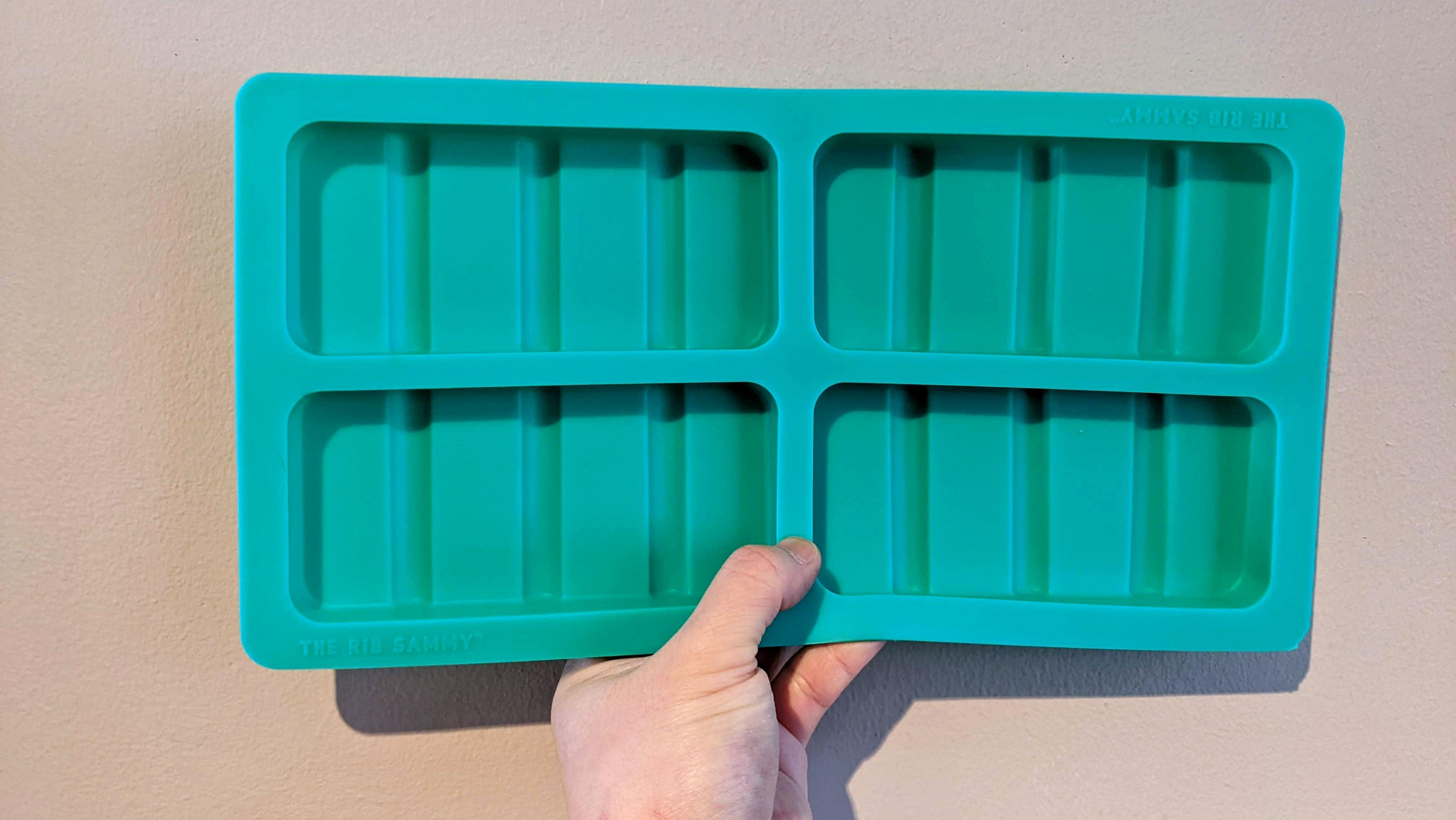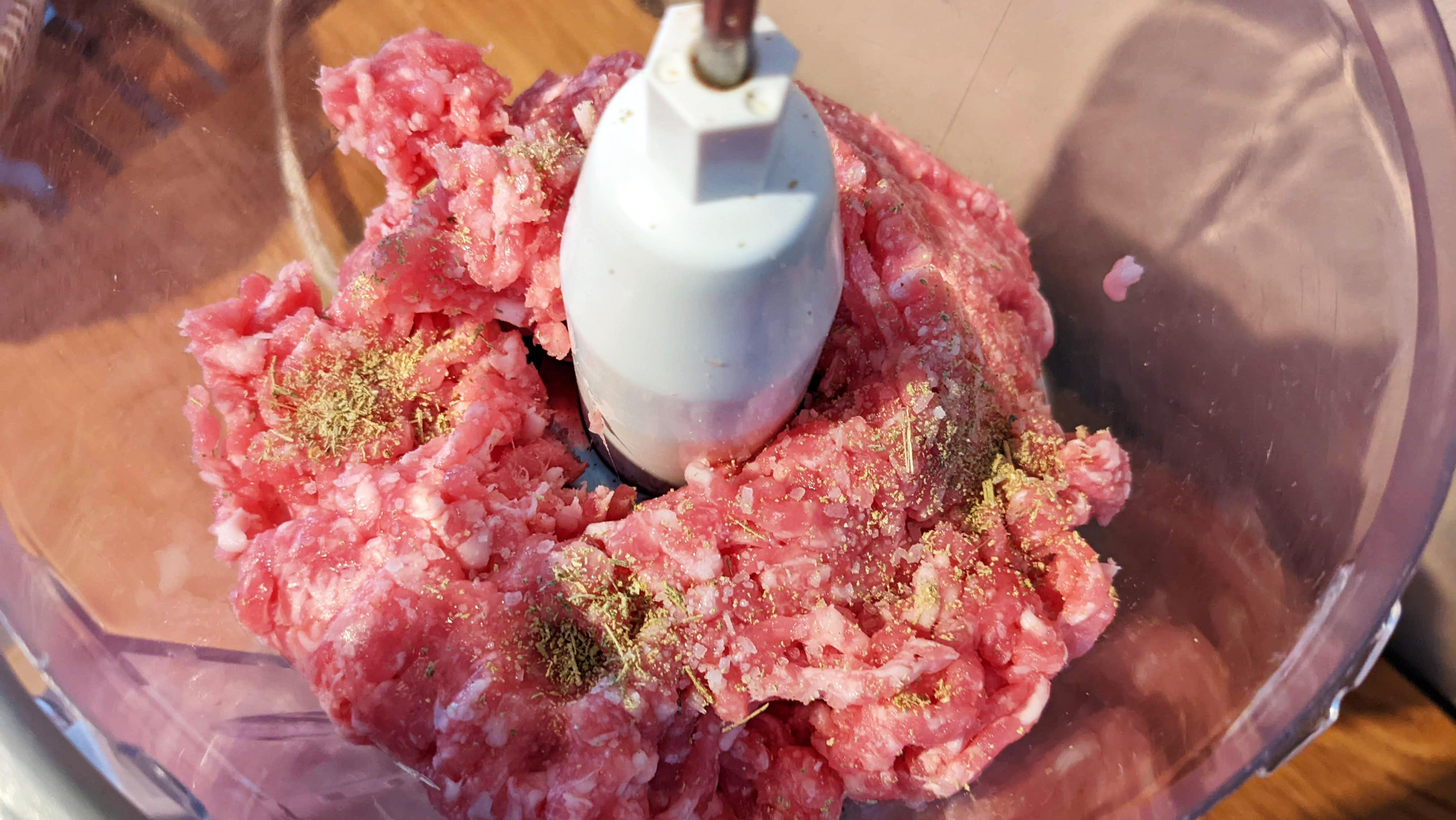How To Have The McDonald's McRib All Year Long
It's easy to make the McDonald's McRib at home, if you have the right equipment.
I love the McRib. It's something for me to look forward to every year come winter, even though deep down inside, I know the thing is only decent. Not mind-blowing. As an enthusiast, it sort of pains me to admit that. But honesty is important with any loving relationship, you know?
For me, the joy of a McRib isn't just the flavor of the sandwich itself, but the combination of nostalgia and limited availability that has always surrounded its release. Four of my dear Takeout coworkers recently tasted the McRib for the very first time; they weren't wildly impressed. Waiting until adulthood to try one probably colored things a little, while I was introduced to the McRib when I was still young. I don't mind being the outlier who is still stubbornly in love with the McRib. To quote the great Pee-wee Herman, "I'm a loner, Dottie. A rebel."
What is the McRib sandwich, exactly?
At its core, the McRib is a pretty simple sandwich consisting of a rectangular boneless pork patty (shaped like a slab of ribs) coated in ample barbecue sauce and topped with thinly sliced onions and pickles, all on a soft white split-top bun. That's straightforward enough. But I secretly think the joy is in its shape. The question is: How can you reproduce that shape at home? Say hello to the Rib Sammy.
The Rib Sammy is a silicone mold that's made to shape ground pork (or any meat, for that matter) into a perfectly boneless imitation McRib patty. You can order one for $14.99 on the product website, which I think is a reasonable price for a novelty item. The Rib Sammy's creator, Tony, reached out to me on Instagram to ask me if I wanted to give the mold a whirl and sent me some samples. Probably because he felt my deep passion for the McRib radiating throughout the internet.
The secret is in the shape
A good deal of the delight in a McRib, at least for me, is that wacky boneless rib shape that looks like the tread of bulldozer. Who knows, maybe actual bulldozers are responsible for the shape of a McRib? I am picturing a bulldozer slowly running over a track of ground pork in my mind. It's oddly soothing.
Perhaps I'm just an overgrown child, but I think the shape of food really does matter. I mean, if a triangle-shaped grilled cheese tastes best, then why wouldn't an elongated McRib patty taste better than some boring round puck of meat? At the very least, the visual appeal of a McRib and its silly simulation of rib bones does set off a weird Pavlovian reaction within me, one of excitement and sheer joy. Its shape is like a way of seasoning the food... in my mind.
At last, I thought, could I be free from the confines of a limited-time-only release? Could I have a McRib all year long now, thanks to this silicone mold? Only one way to find out.
How to make a McRib at home
I looked at McDonald's website to see if I could find the ingredients used in a McRib. Lo and behold, I discovered them: pork, water, salt, dextrose, and rosemary extract.
Before I went just jamming plain ground pork into the mold (which Tony says is perfectly fine, by the way), I wanted to try to truly capture the texture of a McRib. A McRib doesn't have the consistency of, say, a burger, but is rather more like a spongy emulsified sausage. Regular ground meat has a coarser texture to it, so I needed to obliterate this characteristic with brute force.
I blitzed the shit out of the ground pork in a food processor along with one teaspoon of salt and a quarter teaspoon of rosemary. I skipped the water and dextrose. Even though those two elements are in McDonald's ingredients list, I didn't want the water to transform the pork paste into complete mush in the food processor—and as for the dextrose, who just has that lying around? The rosemary was sort of a surprise; I've never once detected any kind of seasoning in a McRib patty other than salt. But hey, why not?
While I don't typically mix salt into ground meat before cooking it, in this case, it's ideal. I won't get into the long explanation since J. Kenji Lopez-Alt does a very thorough job over at Serious Eats, but if you liberally salt ground meat before cooking it, you'll get a sausagey, bouncy texture in the end. This isn't ideal for a burger, but it is ideal for a McRib copycat. Salt dissolves some of the proteins in meat, allowing them to more easily "cross-link" to each other, which results in a sticky, paste-like meat and a denser end product. Just like we've come to expect from McDonald's signature pork product.

A pound of ground pork yielded three generously portioned patties. You can't just put the meat in the mold and pop it back out, however. Tony recommended freezing the mold with the meat inside for at least 20 minutes so the pork keeps its shape when you cook it. I left the meat in the freezer for a bit longer than that just to be safe, about 30 minutes.

Since the molds are made out of silicone, the meat popped right out with no problem once chilled, and I cooked the patties off in a skillet on medium-high heat until they were cooked all the way through. Be careful to flip them gently in the pan, because you might get a little breakage.
(I can't wait until grilling season. Can you imagine whipping out some McRibs for a backyard barbecue? You'd be the king of the party!)

Dressing up your homemade McRib
In terms of barbecue sauce, Tony suggested a blend of two popular sauces: Sweet Baby Ray's along with Open Pit. After some testing, I couldn't quite get a replica of McDonald's sweet dark McRib barbecue sauce (Open Pit is quite vinegary, which made it harder to balance out), but I did find that 1:4 ratio of Open Pit to Sweet Baby Ray's tasted great, so I rolled with that.
When you're saucing your homemade McRib patty, you want to go big. As in, dunk that bad boy in sauce (you want both sides covered), or at least spoon enough sauce all over it so that the meat is practically drowning. If you've ever had a McRib, you know that those things are like 30% sauce, anyway. To finish it off, top with some thinly sliced raw onions and a few pickle slices and you're good to go.
I'm going to go ahead and say the bun isn't hugely important, as long as it's torpedo-shaped and made out of fluffy white bread. I was able to find some split-top mini sub buns at the grocery store, and they looked nearly identical to a McRib bun, sans light cornmeal dusting on top. Tony said he's a big fan of Martin's hoagie rolls, which he trims down for his homemade McRibs.
How does the homemade McRib taste?
Now, is the end result 100% like McDonald's? No. As sad as I am to admit this about my talents, no imitation fast food prepared in my kitchen will turn out exactly like the genuine article. But does it scratch the same itch? Hell yeah, it does. The sandwich has that uniform springy texture that's carried completely by the flavor of barbecue sauce. The onions and pickles lift up the sandwich with freshness, and it's ultimately a pretty delicious package. Plus, making these things is really fun, because how often do you cook with silicone molds?
If you're really craving the mass-produced version, I have seen pre-packaged boneless rib patties at various stores, either as a main course in a frozen TV dinner or by themselves, ready to heat up and eat. But you should really make your own at home. You can even vegan-ize a homemade version using whichever plant-based meat substitutes you'd like. It's pretty fast, since prep takes under 15 minutes and you can clean up the kitchen while the patties set in the freezer.
Tony also let me in on a secret: These silicone molds are technically cake molds, and can be used in an oven up to 400 degrees Fahrenheit. This opens up all sorts of possibilities. A rib-patty-shaped cake to prank someone? How about a McRib-shaped ice cream sandwich? The whole McWorld can be yours if you grab it. All you need to do is mold it.


